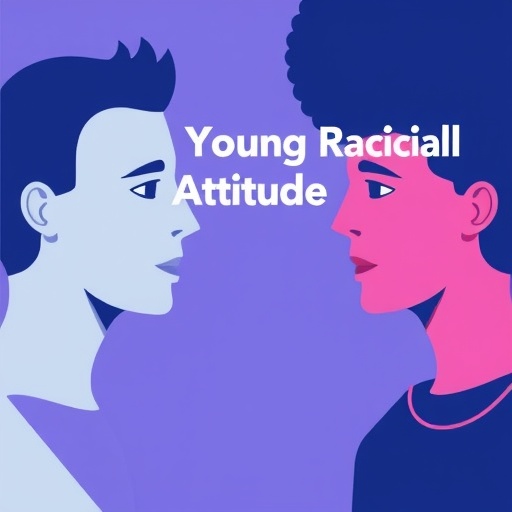In the intricate web of social dynamics, the interplay of race and identity continually shapes the perspectives of individuals and communities alike. Recent scholarly work by Nieri and Huft delves into a pressing issue—how perceived ethnic-racial socialization influences the racial attitudes of White American young adults. This exploration is not merely academic; it bears implications for societal growth, inter-racial relations, and the future cultural landscape of the United States. The researchers take a deep dive into the conceptual frameworks surrounding race, identity formation, and the underpinnings of socialization within an increasingly diverse society.
At the heart of their research lies the concept of “perceived ethnic-racial socialization,” a term that articulates how young adults interpret and internalize messages regarding race and ethnicity from their environment. This encompasses the lessons learned from family, peers, educational institutions, as well as media portrayals of racial dynamics. Given the current socio-political climate, in which discussions about race are at the forefront of public dialogue, understanding how these perceptions form and transform is vital. Nieri and Huft’s work sheds light on mechanisms that may perpetuate bias or foster understanding, providing a nuanced understanding of White American youths’ racial attitudes.
The researchers employed an empirical approach, utilizing both qualitative and quantitative methodologies to gather data. Surveys and interviews were conducted, aiming to gauge how young adults process ethnic-racial messages. This dual methodology allows for a robust analysis, merging the emotional nuances captured in qualitative research with the statistical rigor of quantitative data. Such comprehensive investigation enables the researchers to pinpoint correlations between socialization experiences and the attitudes that young adults hold.
Moreover, their findings expose a troubling trend: when White youths perceive their socialization experiences as lacking ethnic-racial diversity, they are more likely to exhibit prejudiced attitudes. This revelation signifies a critical junction in socialization research, highlighting the profound link between the perceived exposure to diverse racial narratives and the development of empathetic racial attitudes. By recognizing this relationship, stakeholders across educational and social spheres can work towards fostering environments that promote diversity and inclusion.
In a society that often grapples with racial tensions, understanding how racial attitudes are shaped is not just an academic endeavor—it’s a societal imperative. The findings from Nieri and Huft call for a reevaluation of how institutions and communities can better facilitate discussions about race from an early age, reinforcing the importance of diversity in socialization practices. By integrating diverse perspectives into curricula and community engagements, it is plausible to nurture a generation more cognizant of racial dynamics.
As the research unfolds, it prompts questions regarding the responsibility of parents, educators, and peers in shaping racial attitudes. The authors note that families play a crucial role in this socialization process. Those families that engage in open conversations about race and promote an understanding of different cultural experiences tend to raise young adults who display more inclusive attitudes. Conversely, families that shy away from these discussions inadvertently contribute to a more narrow worldview among their children.
The implications extend beyond the individual to encompass broader societal narratives. When White young adults lack exposure to diverse racial experiences, not only are their perceptions of other races potentially skewed, but societal polarization is also exacerbated. This increases the urgency for deliberate socialization strategies that involve dialogue about race, helping to dismantle stereotypes and fostering mutual respect among differing ethnic groups.
This inquiry also aligns with discussions regarding the roles of educational institutions in shaping young people’s attitudes. Schools serve as a microcosm of society, presenting a unique opportunity for fostering racial understanding. By implementing curricula that prioritize diversity and inclusion, educators can help shape a more informed and empathetic generation. Nieri and Huft’s research provides a framework for evaluating how educational institutions fulfill (or fail) this role.
Within the context of media influences, it is imperative to recognize the impact of representation on social attitudes. In today’s digital age, media serves as a primary vehicle through which young adults gain exposure to diverse perspectives—or lack thereof. The research suggests that media portrayals that neglect to represent a multicultural society contribute to the insular racial attitudes among White American youth. Therefore, fostering a media landscape that celebrates diversity can profoundly influence the way young adults view race and ethnicity.
In conclusion, Nieri and Huft’s investigation into perceived ethnic-racial socialization illuminates critical pathways through which racial attitudes are formed and influenced among White American young adults. The implications of their findings resonate across various spheres, including familial interactions, educational frameworks, and media representations. It is abundantly clear that fostering an understanding of racial dynamics is a multi-faceted endeavor that requires collective effort. The path to a more inclusive and empathetic society lies in understanding and addressing the roots of racial attitudes, encouraging a more profound commitment to diversity and dialogue among all individuals.
The convergence of research findings, societal needs, and educational practices underscores the importance of engaging with diversity from a young age. As we continue to contest and redefine race in the contemporary landscape, the work of researchers like Nieri and Huft will be vital in guiding future discussions and initiatives aimed at promoting racial understanding and cooperation.
Subject of Research:
Article Title:
Article References:
Nieri, T., Huft, J. Perceived Ethnic-Racial Socialization and White American Young Adults’ Racial Attitudes.
J Child Fam Stud (2025). https://doi.org/10.1007/s10826-025-03199-5
Image Credits: AI Generated
DOI:
Keywords:




